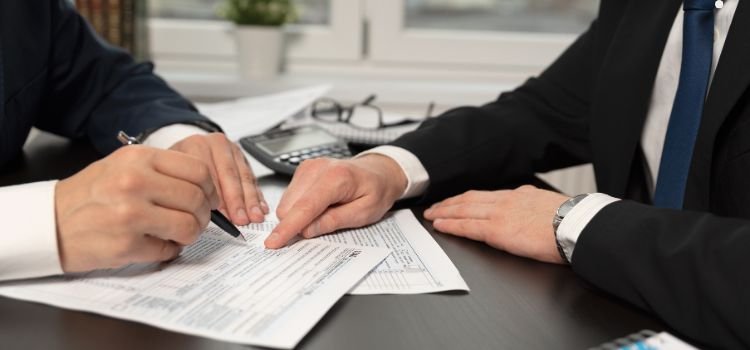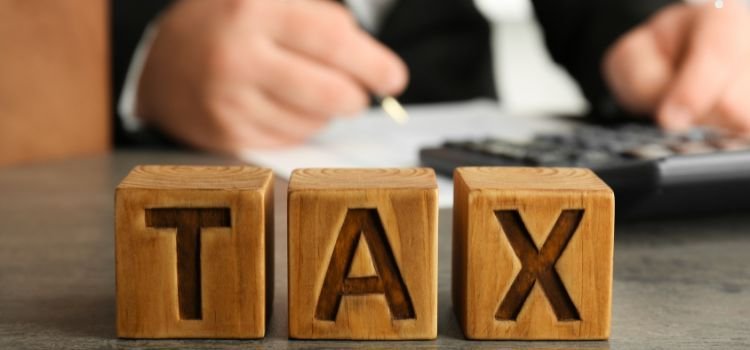You’ve got your bags packed, flights booked, and a new home lined up in the UK.
Everything feels ready, except your taxes. Many expats discover quite late that UK tax rules can affect income, savings, pensions, and even property held abroad.
Knowing what to tackle before you arrive can save a lot of stress and unexpected bills, and several key steps make the move smoother and your finances safer.
This checklist breaks down the practical actions you can take now, so you can move forward with your life in the UK.

Check your UK residency status before moving
Your tax residency determines what income and assets the UK will tax and getting it wrong can be costly.
HMRC uses the Statutory Residence Test to decide who counts as a UK resident. It looks at how many days you spend in the country, where your home is, and other connections.
Even if you keep a property abroad, spending a lot of time in the UK could make you resident for tax purposes.
Knowing your status early helps you plan your finance, you can decide whether to bring certain income or investments to the UK right away or wait, or whether you need to report overseas assets immediately.
It turns what can feel like a surprise tax bill into something manageable and gives you peace of mind before you make your move away.
Understand how your overseas income and assets are taxed
Different types of income are handled differently, and knowing the rules beforehand counts.
For example, rental income from a property you own abroad may need to be reported to HMRC, even if you don’t bring the money into the UK immediately.
Similarly, dividends from overseas investments or interest from foreign bank accounts can become taxable once you settle in. The UK also has agreements with many countries to prevent double taxation, so you may be able to claim credit for taxes you’ve already paid abroad. (HMRC – Tax if you live abroad)
Taking a close look at your offshore assets before moving allows you to organise your finances and plan transfers in a way that’s compliant but also efficient. It’s less about avoiding tax and more about making sure you know exactly what you’ll owe and when.
Review pensions, savings, and investments for UK tax implications
When it comes to money, moving countries can feel like hitting “reset”, but your savings, investments, and pensions don’t automatically follow your plans.
Have you thought about how your overseas income will be taxed once you’re a UK resident? Ignoring it could mean unwanted surprises.
Pensions earned abroad, dividends from international stocks, or interest from foreign accounts may all fall under UK taxation rules. Where your assets are held, how income is received, and whether there’s a tax treaty with the UK can affect exactly what you owe. (HMRC guide on foreign pensions)
It’s worth pausing to consider questions like: is it better to bring certain assets into the UK now, or wait? Are your records complete and easy to access? Being organised gives you control and makes reporting to HMRC straightforward.
Planning ahead also gives you flexibility. By reviewing your investments and pensions, you can make informed choices about timing withdrawals, managing currency conversions, or deciding which funds to move first. Taking these steps now can save stress and worry.

Organise paperwork and plan ahead for HMRC compliance
Think you can just deal with paperwork after you arrive?
In reality, having your documents organised beforehand makes life much simpler.
Tax returns, proof of overseas income, bank statements, and records of previous tax paid are all things HMRC may ask for. Being prepared now means you won’t be scrambling later.
It’s also a good idea to think about reporting deadlines and how you’ll keep track of them. For example, if you’re planning to claim the remittance basis for offshore income, or take advantage of any reliefs under a double tax treaty, knowing exactly what to submit and when is important. (See HMRC guidance on remittance basis)
Ask yourself: do you have all your foreign income and asset records organised? Could setting up a simple filing system or digital folder now save hours of stress later?
Preparing this information before your move gives you clarity and reduces the risk of penalties or missed opportunities.
In short, staying on top of paperwork is about taking control of your finances as you start your UK life. A little planning now goes a long way in keeping your move smooth.
Conclusion
By checking your residency status, understanding how your overseas income will be taxed, reviewing pensions and investments, and organising all your paperwork in advance, you can make the transition smoother.
If you’re unsure about any part of the process, speaking with a cross-border tax specialist can make all the difference. They can guide you through the rules, help with planning, and give you peace of mind so you can focus on settling into your new home.
Thanks for reading!

Meet Mo
Mo is experienced in dealing with clients from start-ups and expanding businesses for UK property investors in the retail and hospitality sector. He also brings his extensive experience in setting up and managing hotels, cafes, restaurants and rental properties across the UK to help clients achieve their business goals and succeed.
He regularly shares his knowledge and best advice here on his blog and on other channels such as LinkedIn.
Book a call today to learn more about what Mo and Monarc Finance can do for you.

